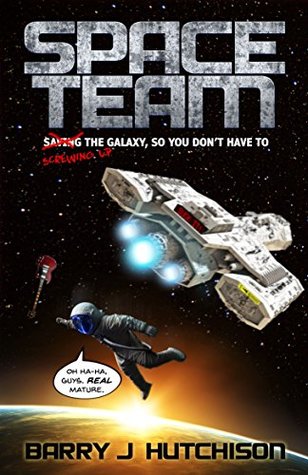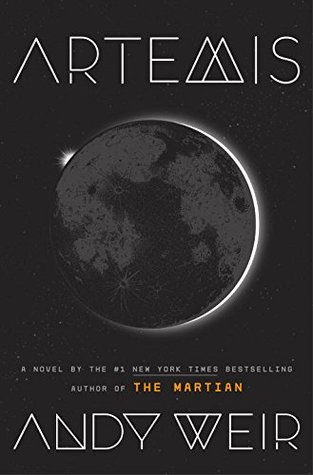Tyson Adams's Blog, page 35
July 31, 2018
Replacing libraries with Amazon?
Most people who like their books and reading will probably have heard about an article in Forbes attacking libraries. I thought I’d present the article and a few rebuttals here, because I like libraries and books and how badly the author of the piece fared.
Amazon Should Replace Local Libraries to Save Taxpayers Money
Panos Mourdoukoutas
Jul 21, 2018, 09:00amAmazon should open their own bookstores in all local communities. They can replace local libraries and save taxpayers lots of money, while enhancing the value of their stock.
There was a time local libraries offered the local community lots of services in exchange for their tax money. They would bring books, magazines, and journals to the masses through a borrowing system. Residents could borrow any book they wanted, read it, and return it for someone else to read.
They also provided residents with a comfortable place they could enjoy their books. They provided people with a place they could do their research in peace with the help of friendly librarians. Libraries served as a place where residents could hold their community events, but this was a function they shared with school auditoriums. There’s no shortage of places to hold community events.
Libraries slowly began to service the local community more. Libraries introduced video rentals and free internet access. The modern local library still provides these services, but they don’t have the same value they used to. The reasons why are obvious.
One such reason is the rise of “third places” such as Starbucks. They provide residents with a comfortable place to read, surf the web, meet their friends and associates, and enjoy a great drink. This is why some people have started using their loyalty card at Starbucks more than they use their library card.
On top of this, streaming services such as Netflix and Amazon Prime have replaced video rentals. They provide TV and movie content to the masses at an affordable rate. Actual video rental services like Blockbuster have gone completely out of business.
Then there’s the rise of digital technology. Technology has turned physical books into collector’s items, effectively eliminating the need for library borrowing services.
Of course, there’s Amazon Books to consider. Amazon have created their own online library that has made it easy for the masses to access both physical and digital copies of books. Amazon Books is a chain of bookstores that does what Amazon originally intended to do; replace the local bookstore. It improves on the bookstore model by adding online searches and coffee shops. Amazon Go basically combines a library with a Starbucks.
At the core, Amazon has provided something better than a local library without the tax fees. This is why Amazon should replace local libraries. The move would save taxpayers money and enhance the stockholder value of Amazon all in one fell swoop.
As you can see, this article was terrible. The arguments are the sort you hear from the “let’s privatise everything” and the “what do you mean you won’t pay for the privilege of working in my asbestos mine?” crowd. They don’t believe in public goods, public benefits, nor that poor people are people.
Needless to say, the author of the piece proceeded to be mocked and ridiculed.
[image error]
I hope he didn’t go to a public hospital for treatment of that burn.
To spell it out, Panos’ argument forgets that Amazon is a company whose goal isn’t to provide books to people, instead their goal is to make money. A library, however, is there to provide a community benefit of knowledge, education, and entertainment. Libraries are a key tool in creating a literate populous who are better able to contribute to our society. Plus, they have books. Books are awesome. Anywhere with books is awesome.
Panos, of course, couldn’t admit he might have made a mistake.
[image error]Seriously, EveryLibrary keeps going in showing how bad his research is.
I have no idea how he became a professor.
The desperate and nonsense defence he used for the cost of libraries was immediately debunked by the librarians at EveryLibrary:
There are, of course, many problems with this idea. First of all, libraries cost the average American taxpayer over 18 years old just $4.50 per month. An Amazon Prime subscription alone is nearly double that price and you get very little for free with that subscription because you still have to buy books or pay more to gain access to premium goods or services. Source.
Amazingly enough, Panos was correct in claiming that our taxes pay for libraries… This is the sort of insight I think only a Professor of Economics could give us. But he has rather overstated the cost of libraries (unless he has 10x the average property portfolio) and failed to understand how much buying books costs.
The USA does things a little differently to what we do here in Australia. The USA ties library funding to levies and property taxes, so richer areas get nicer better-resourced libraries, whilst poorer areas get about what they always do. In Australia, our libraries are funded out of the state government budget.
Do us Aussies get good value for money just throwing our regular tax dollars at libraries? Let’s look at the Western Australian State Library, which has a 2016-17 budget of $9.8 million, or $3.38 per person. Now, even if we account for only the third of people (2009-2010 ABS data) who go to libraries as paying for them, then it is $9.95 per person. In Australia that wouldn’t even buy one discounted paperback. And this doesn’t even account for all of the other things libraries do with that budget, like the reading programs, book launches, archiving, history preservation, and maintaining that fleet of Ferraris they drive to work. Seems like a good investment to me.
Fortunately, Forbes pulled the article, despite its popularity, because of the backlash. They realised, far too late, that Panos didn’t have a clue and his arguments were rubbish. Interestingly, that hasn’t stopped them from publishing climate change denial articles. At least we love libraries, if not the planet we live on.
Related links:
https://qz.com/1334123/forbes-deleted-an-op-ed-arguing-that-amazon-should-replace-libraries/
https://tysonadams.com/2017/10/11/who-reads/
https://tysonadams.com/2018/01/24/writing-in-western-australia/
https://www.vox.com/culture/2018/7/24/17603692/public-libraries-essential-forbes-amazon
EveryLibrary Links:
July 29, 2018
Judging your bookshelf
July 26, 2018
Book review: Artemis by Andy Weir
My rating: 5 of 5 stars
You know you’ve been reading too much fantasy when a sci-fi book refers to their currency as Slugs and you just assume they use terrestrial gastropod molluscs as money.
Jazz Bashara is barely making ends meet in Artemis, the moon colony. After a series of bad life decisions, she is living poor and having to hustle to survive. Then Trond Landvik offers her a lot of money to do something shady, a crime that could change her fortunes. Of course it will go smoothly…
Before Artemis was released I tried to get my hands on an Advanced Review Copy. I loved The Martian, the first hard sci-fi novel I’ve enjoyed in decades, so I was really looking forward to Andy’s follow up. Unfortunately, I missed out and had to buy the paper edition when it arrived in stores. My fortunes didn’t improve. Everyone in my family decided they needed to read my copy of the book, so over 6 months later I decided I’d have to get another copy, this time the audiobook read by Rosaria Dawson. No one stole this copy. Yay.
This is obviously a very different novel to The Martian. The narrative format, the main character, and the antagonist are all far removed from the Mark Watney diary about a man vs nature adventure. Instead, Jazz is more akin to a likeable antihero, one who has to use her big brain to solve the continuingly mounting problems.
While this was never going to be comparable to The Martian, this was another very entertaining novel from Andy Weir.
July 24, 2018
Book Review: Space Team by Barry J Hutchison
 Space Team by Barry J. Hutchison
Space Team by Barry J. Hutchison
My rating: 5 of 5 stars
This is a Space Review of a Space Book.
Cal Carver is all charm. That’s why as a low-level crook the warden decides he should spend the night in a cell with the most ruthless cannibal on the planet. This would have been a concern if he wasn’t accidentally recruited for a team whose goal is to stop a pathogenic outbreak that could start a war. In space! Cal is teamed up with a by-the-book rookie, a mechanoid whose abilities are dialled in, a humanoid wolf, and a Splurt. Together they are Space Team… when they aren’t trying to kill each other.
This was lots of fun. As Hutchinson notes in his author comments, this story was meant to be entertaining escapism. No deeper meanings, nothing serious, just fun. And it succeeds masterfully. The pacing is quick, the jokes come thick and fast, and the adventure keeps you entertained.
I’ll be reading more from Barry and this series for sure.
July 22, 2018
Loving reading and book wardens
When do people start to hate reading?
For us readers, the answer is “Never! How could you ask such a silly question? What’s wrong with you? Do you even book, bro?” But the reality is that a significant chunk of the population have not read a book in the last year, and/or aren’t regular readers. We have to admit: .*
I have a pet hypothesis** on this. During school, mainly high school, kids start to hate reading. This is because teachers, academics, literary people, policy makers, and general busybodies, start to decree what kids should and shouldn’t be reading. As a result, kids are “forced” to read books that they aren’t interested in or that have won an award or are a “classic” or that fill a certain level of appropriate snootiness that appeases book snobs.
Or as Blackadder put it:
In the academic text – From Striving to Thriving: How to Grow Confident, Capable Readers – Stephanie Harvey and Annie Ward discuss this issue. They outline this problem and have summarised reluctant readers with a cartoon from Dav Pilkey (of Captain Underpants fame).
[image error]Cartoon by Dav Pilkey in From Striving to Thriving by Stephanie Harvey and Annie Ward
One of the authors, Annie Ward, presented at a readers summit recently and one of her slides has made it to social media. It covers some key points for how educators become “book wardens” who restrict reading and undermine reading ownership and choice. Book Wardens tend to:
Confine kids to “just right” books.
Express book snobbery.
Look askance at funny, edgy, or forbidden topics.
Frown upon rereading.
Impose accountability measures for reading.
Sound familiar?
While I have frequently focussed on the snobbery aspect to this problem, particularly from the reading/publishing industry itself, there is more to this. Take for example “just right” books and adults. What image do we conjure up when someone mentions comic book readers? Pimply teenage boy? An obese virgin loser who still lives with his parents? You know, this guy:
[image error]
The problem with that series of assumptions is that it is a form of reading snobbery. How could a comic be entertaining to anyone who isn’t a loser? Or similar statements that you’ll hear from people who have never read a comic book and battle to wrap their head around the art form.
In other words, even as adults, we are encouraging people not to read.
But don’t worry, as Dav’s second-page shows, we can all make a difference to people by encouraging them.***
[image error]
*A quarter of people () haven’t read a book recently. I’ve previously discussed the reading figures for the US, UK, and Australia and it is interesting how the figures come together. Suffice to say, reading is not a favourite hobby for most people.
**Hypothesis because a theory is something pretty solidly supported, whereas a hypothesis is a question you want to answer. Join me in my scheme to change the values that will stop the positive feedback of the colloquial usage of theory today!
***Although in fairness, the literary snobs are trying to encourage people to read. Their failing is that they think what they like should be what everyone reads. They have us talking about guilty pleasures and judging what we read by their standards rather than just letting us read stuff we enjoy.
[image error]
July 17, 2018
Where’s my hoverboard?
Ever wanted a six-minute overview of American science fiction? Well, here is Lindsay Ellis doing just that.
The History of Science Fiction!
Stories, tales, and myths from all around the world posing speculative questions around technologies have existed long before Ray Bradbury and Frank Herbert, from the time-traveling Japanese fairy tale “Urashima Tarō” to some of the speculative elements of 1001 Arabian Nights. But there are a few eras that begin to shape what we’ve come to know as science fiction today. Hosted by Lindsay Ellis.
Vote on your favorite book here: https://to.pbs.org/2Jes2X5
It’s Lit! is part of THE GREAT AMERICAN READ, a eight-part series that explores and celebrates the power of reading. This all leads to a nationwide vote of America’s favorite novel. Learn More Here: https://to.pbs.org/2IXQuZE
Correction: At 1:49, we accidentally said that Mary Shelley’s Frankenstein was published in 1918, when it was published in 1818.
Also, recently I called Mary Shelley’s Frankenstein a horror novel, whereas here it is called a science fiction novel. Technically it is both a science fiction and a horror novel. Moreover, it was written as a Gothic novel, a genre which is mostly known by its sub-genre of Gothic Horror. So while you could say Frankenstein is both science fiction and horror, you’d probably lean more toward horror if you had to pick between the two whilst ignoring the Gothic genre label.
Because accurate genre labels are very important. And novels are always composed of only one genre. Apparently.
July 15, 2018
Book Review: Burn by James Patrick Kelly
My rating: 3 of 5 stars
On the Upside, no one will take your calls.
Prosper Gregory “Spur” Leung wakes up in a hospital. All he can remember is the fire and his skin burning. After the docbot patches him up he makes a few calls and heads home to his farm on the utopia of Walden – a planet being gradually terraformed to forest, orchards, and farms. Those few calls make the homecoming… interesting.
Every time I put this book down I made the same comment, ‘I don’t know what this book is about.’ Even now that I’ve finished I’m still at a loss as to what the point of it all was. In the background, there are some ideas. In the foreground, there is a naive protagonist you could use to explore those ideas, but I’m not sure the ground overlapped at any point.
That isn’t to say that this book isn’t well paced, exciting, and entertaining; it is. There are some interesting themes as well, like environmentalism and competing interests. I breezed through and enjoyed reading the book, but can’t help but feel that the story was missing something.
I received an advanced review copy of this book in exchange for an honest review.
July 12, 2018
Book review: The Colour of Magic by Terry Pratchett
 The Colour of Magic by Terry Pratchett
The Colour of Magic by Terry Pratchett
My rating: 4 of 5 stars
Wizards with synesthesia hearing octarine would be an interesting experience.
Twoflower arrives in Ankh-Morpork with his sapient luggage filled with gold. After years in inn-sewer-ants he is looking to become the first tourist on the disc. Rincewind makes his acquaintance thanks to his gift for languages, and they bumble into adventure.
Having read some of the last instalments in the Discworld novels I thought it was time to go back to read the earlier instalments. The writing in the books has changed over the course of the series. Most of the Discworld novels I’ve read so far have been directly satirising a modern-day topic or institutions, but The Colour of Magic is much more concerned with satirising fantasy novels themselves.
It is hard to give this novel a higher rating, however, as it does what all annoying fantasy series do: continue in the next book. Yes, great joke, but it does mean that until I’ve read The Light Fantastic there are no five stars from me.
July 10, 2018
Are e-readers filled with garbage?
[image error]
Every now and then I like to look back through older posts on my blog. It’s a form of masochism built upon equal parts fascination with forgotten ideas and revulsion at missed typos and awkwardly phrased run on sentences that really don’t know when to end, that should have ended sooner, and aren’t something I do anymore. One snarky post caught my eye and I thought I should retread that ground.
The post was based upon an article in The Guardian, one of the last bastions of book snobbery that manages to not trip over its own superiority complex – sometimes. The article had decided that all of these new-fangled e-readers weren’t filled with the right kinds of books.
Kindle-owning bibliophiles are furtive beasts. Their shelves still boast classics and Booker winners. But inside that plastic case, other things lurk. Sci-fi and self-help. Even paranormal romance, where vampires seduce virgins and elves bonk trolls.
Ahh, good, they’ve figured out what people actually enjoy reading. Do go on.
The ebook world is driven by so-called genre fiction, categories such as horror or romance. It’s not future classics that push digital sales, but more downmarket fare. No cliche is left unturned, no adjective underplayed.
“So-called” genre fiction categories of horror and romance… This article was published by a so-called newspaper.
At this point, you can see why I originally wrote about this article. Like many of these worthiness arguments, the article is quick to deride any genre book, particularly e-books in this case, as not having “classic” potential. You know, classics like The Godfather (crime), Lord of the Rings (fantasy), The Hitchhiker’s Guide to the Galaxy (science fiction), Frankenstein (horror), or Pride and Prejudice (romance). Why would anyone ever read dreck like genre fiction?
As I’ve said before, I could easily write a post-a-week pulling apart one of these articles. They are very common and rely on the same handful of bad arguments. In my original response to the article, I wrote that literary fiction – the preferred genre of the authors of these sorts of articles – and biography markets have been kept afloat by this sort of snobbery. People like to be seen reading high-brow stuff, and people like to give worthy books to friends and family. Not one person has ever bought a political memoir to read, they are always a Father’s Day gift. And as the article states, e-book readers don’t have to let people see what they are reading, so they don’t have to pretend any longer.
The reading public in private is lazy and smutty. E-readers hide the material. Erotica sells well. My own downmarket literary fetish is male-oriented historical fiction (histfic). Swords and sails stuff. I’m happier reading it on an e-reader, and keeping shelf space for books that proclaim my cleverness.
Well, maybe people will pretend just a bit longer…
Since this was an article from 2012, the talk of e-books was as they were ascending in popularity. Growth in the e-book market has since slowed, with the market being 20% of the total sales for the major publishers, down from a high of 28% five years ago. Of course, in the fiction market e-books are more like 50% of sales for the Big 5 publishers. And those publishers are having trouble with new fiction titles, as they haven’t had any “big titles” selling well, instead relying on genre fiction backlists and the sudden interest in political books… Wait, what?
It puzzles me why the author of this article insisted that e-readers are filled with garbage, particularly since the arguments supporting the claim lack evidence. A large chunk of book sales from major publishers are e-books, so it can’t all be the dreck titles, can it? What proof do we have that e-readers only contain Twilight fan-fiction and Dan Brown* novels? The proof we are offered is that anything genre is garbage: checkmate person who reads books! So maybe these article writers at The Guardian are onto something, maybe e-readers like the Kindle are filled with garbage.
[image error]
*Sorry Dan, you and James Paterson are my go-to punching bags here. If I’ve offended you or James by suggesting your books aren’t high-quality writing, then I’m quite happy to edit out those comments from my blog for a small six or seven figure fee. Just post me one of the bags of money you use as a pillow, that should cover it.
July 8, 2018
Book vs Movie: American Pyscho – What’s the Difference?
[image error]
This month’s What’s the Difference? from Cinefix tackles the disturbing book and the amazing movie, American Pyscho.
I can’t remember the exact reason, but after hearing about the novel American Pyscho I decided I should read it. To the library! Where they didn’t have it. To the bookshop! Where they didn’t stock it. To the indie bookshop! Where I was able to find one copy being sold in shrinkwrap.
There’s a point to be made here about the value of indie bookstores. And having all the sick and twisted novels available for sale probably isn’t the point I intended.
And this is a sick and twisted novel. There are some scenes in there that would make a horror fan blanche – break free little rat, break free! The “satire” of the novel doesn’t feel like satire, it feels like gratuitous sadism that is there as an extreme juxtaposition to banality in a lazily made point about yuppies.
Which is why I regard the movie as far superior. It manages to skim through and grab the major elements of the book and put them on screen without becoming horror porn for vore fans – don’t look up that word, you don’t want to know. Ellis may not be a fan of the movie – because it is hard to tell if Bateman got away with it or imagined it – but his complaints are far too typical of the precious artists I’ve commented on in this series many times.
The irony is that many people would say that the movie is still ultra-violent. In which case, don’t read the book. Don’t do it. Or keep some lye on hand.
[image error]Do you like Huey Lewis and the News?






